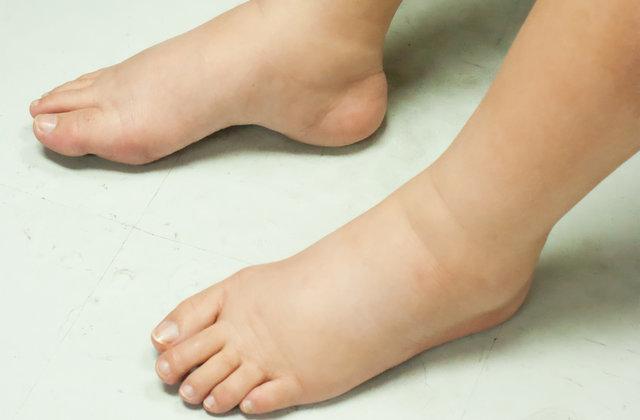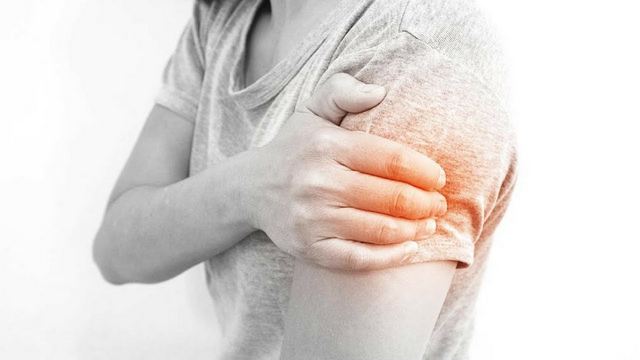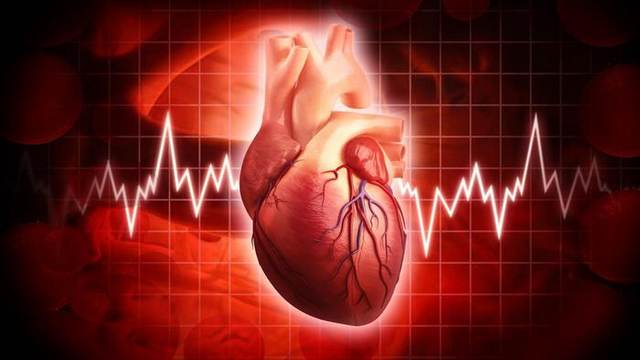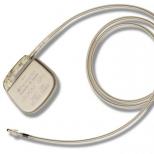10 signs you have a weak heart
Health
Don't ignore these signs. They may indicate that your heart is not working properly.
Heart disease is one of the most common diseases in the world and one of the most common causes of death.
Very often, the body gives signals that something is not right with you. Here it is important not to miss the clues indicating heart problems.
A weak heart is a heart that is not pumping blood as efficiently. Unfortunately, a person may not notice the symptoms for a long time, and discovers the problem too late.
What signs can indicate weakness of the heart or heart failure?
Heart failure symptoms
1. You constantly feel tired.

One of the most common signs of heart failure is fatigue.
If you have a weak heart, we may feel tired even when you are resting at home. When you walk and go about your daily activities, you may feel even more exhausted.
One of the reasons why people with heart failure feel constantly tired is circulation problems.
A weak heart cannot pump blood efficiently to all the organs and muscles of the body. They do not get enough nutrition and oxygen, hence the fatigue.
2. You are often short of breath

An average person can walk at a fast pace for 20 minutes without taking a breath.
Someone with a weak heart can walk without panting for less than 10 minutes.
Shortness of breath, especially if you wake up in the middle of the night, should alert you. In medicine, this phenomenon is called paroxysmal nocturnal dyspnea and is a classic symptom of a weak heart.
3. Your feet are swollen

With a weak heart in a person, blood circulation to the periphery of the body is disturbed. Fluids begin to seep and accumulate under the skin, especially on the legs. This is due to the fact that gravity pulls the liquid down.
Edema is usually seen in both legs. It may disappear in the morning and reappear in the evening.
By itself, a small swelling of the legs is not dangerous. But if the condition worsens and the swelling increases, walking may be difficult. Edema is usually treated with diuretics, which remove excess fluid from the body.
4. A cough that won't go away

Fluid accumulation may not be limited to the legs. Fluid can also accumulate in the lungs, which can cause difficulty breathing and coughing.
This cough can be persistent and annoying. Some people notice that the cough comes on during the day, while others only get it when they lie down.
Sometimes coughing may be accompanied by the release of pink frothy mucus. You should also pay attention to wheezing, which is often mistaken for an allergic cough.
In any case, if you have a long persistent cough, this is already a reason to see a doctor.
Signs of heart failure
5. Loss of appetite

A person with a weak heart often loses appetite or interest in food. The explanation may be due to the fact that the fluid in the abdomen gives a feeling of fullness and interferes with normal digestion.
It is worth noting that loss of appetite does not always indicate a weak heart and there are many other diseases that are characterized by poor appetite.
6. Pain that radiates to the arm

When the heart is not working properly, men most often experience pain in the left arm, while women may experience pain in one or both arms. What's more, many women have reported unusual shoulder pain shortly before a heart attack.
This is due to the fact that heart pain spreads through the spinal cord, where pain receptors and many other nerve endings are located. The brain can confuse these sensations and cause pain in one or both hands.
7. Strong anxiety

Several studies have shown that people who suffer from anxiety from an early age are more likely to develop coronary heart disease.
Anxiety itself can be a symptom of many diseases and arise from stress, frequent panic attacks, severe phobias, and other disorders.
Constant anxiety can lead to tachycardia and high blood pressure, which eventually leads to coronary heart disease.
8. Pale or bluish skin

It is worth noting that people who have pale skin from birth do not necessarily suffer from heart disease.
However, if the skin has become unusually pale, this may indicate a decrease in blood flow due to the weakness of the heart, which is not able to properly pump blood around the body. Tissues, not receiving sufficient blood supply, lose their color.
Often a person may turn pale due to shock, which occurs when there is insufficient blood circulation. It is for this reason that people suffering from a heart attack or heart failure turn pale.
9. Skin rash or unusual spots

People who suffer from eczema or shingles have an increased risk of developing heart disease.
So, the researchers found that patients with eczema in 48% of cases suffered from hypertension, and in 29% of cases from high cholesterol. At the same time, shingles increases the risk of heart attack by 59%.
10. Rapid heartbeat

An increased heart rate often indicates a weak heart. This is due to the fact that the heart works with all its might, which further wears out the heart muscle.
Imagine a horse pulling a cart. If the horse is weak and fragile, he will be able to pull the cart to the maximum of his abilities, but for a short distance, and after that his strength will run out.
The same can happen with a weak heart, which is why it is so important to see a doctor in time for timely treatment.





